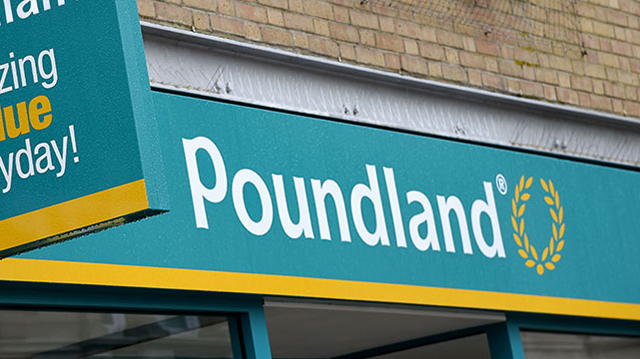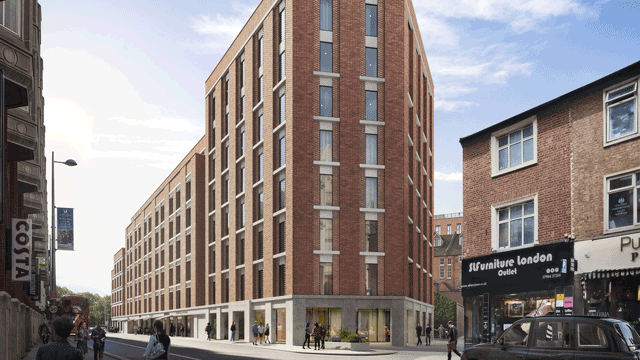Blink and you might have missed the transformation that is happening. Spain has moved from a troubled case to hot investment tip in the past year, and retail leads the way.
Spain is following Ireland on the recovery trail, with a string of researchers and advisers putting the country near the top of the list for investors in 2014.
These advocates include Neil Blake, CBRE’s head of research and forecasting for the UK and EMEA, who says that “prime Spain looks like prime Ireland did 18 months ago”, even though he extends the caution that retail is one of the weaker sectors because consumer spending is still fragile.
However, he adds:“If anything, the upturn is turning out to be stronger than expected, so I think people are right to be optimistic.”
Perception matters in these circumstances. Luis Espadas, Savills’ head of capital markets in Spain, says: “The big difference compared with other years is perception. We are better perceived since the restructure of our financial system. All markets have relaxed. It seems we have reached the bottom of the cycle and the majority of investors accept that now is a good time to invest in Spain.”
In other words, investors have decided that decreasing risk in Spanish markets now justifies investment; there are good prospects of prices increasing as the economic improvement consolidates.
Changing attitudes to risk
Others agree. In January, research from the Urban Land Institute (ULI) and PwC backed Savills’ view with a report suggesting that investors were increasingly comfortable taking on risk in search of returns.
ULI chief executive Joe Montgomery said: “Investor interest is now moving to Spain, where there are signs that opportunistic investors, who entered the market when SAREB [the Spanish state-organised bad bank] opened for business last year, are now being followed by mainstream institutions.”
Investor interest in property there is rising because, as well as the incipient Spanish recovery, prime property in core European markets is now being seen as overpriced, adds the ULI/PwC report. It is not just talk. Last year saw several important deals in the Spanish shopping centre market, notably Intu’s purchase, with the Canada Pension Fund investment board, of the Park Principado shopping centre in Oviedo for €162m (£134m) in October. Intu has also started pre-development work on two sites in Valencia and Vigo with Eurofund, the founding investor in Puerto Venecia in Zaragoza.
Martin Breeden, development director at Intu, says he believes the Oviedo investment is “one of the best shopping centres in Spain” and adds that it is doing well against a background of broader Spanish retail improvement.
He says: “There are signs that the economy is improving. In particular, Spain came out of recession in Q3 2013, unemployment fell and there are signs of improved consumer confidence.”
Puerto Venecia in Zaragoza also saw an important deal last year when Orion’s European Real Estate III fund bought the 50% of the centre it did not already own from British Land ?for €144.5m.
Aref Lahham, founding ?partner and managing director of Orion, says: “We firmly believe there is consolidation of the retail property market in Spain and that the major regional centres will continue to perform as the country comes out of recession.”
Investment in existing centres also indicates that owners are starting to believe in a better future. In Barcelona, for example, Unibail-Rodamco is spending €130m on remodelling the Glories shopping centre, which should be completed by 2016 (see panel).
In short, the Spanish recovery seems to be underway.
None of this means there are not risks, of course. Savills’ Espadas says that although the retail market “is attractive from a capital point of view”, consumer confidence remains weak and sales have yet to recover properly.
“It is still a process of consolidation,” he says.
Opportunity knocks
Justin Taylor, partner and head of European retail at Cushman & Wakefield, adds that this is one reason why many of the deals and prospective deals ?in Spain are “opportunistic”, ?with many of the investors in the latest flurry involved intimately in the markets in which they are investing. This includes Orion’s purchase of Park Principado, he says, sold by British Land. Orion was a prime candidate to buy because of its existing interest in the centre.
“They bought it because they could,” he says.
For retail, what happens from now on is likely to be crucial. More retail spending is what will drive the recovery on and that is the one trend that the market is still waiting for. But for investors it is the usual story. If they wait for the recovery to be complete, they are probably too late.
Glories’ glorious timing
Not every new investment in Spain’s retail market is opportunistic. Unibail-Rodamco’s investment of €130m in Barcelona’s Glories shopping centre may be timed perfectly to take advantage of the Spanish recovery, but it wasn’t planned that way.
Simon Orchard, managing director of Unibail-Rodamco in Spain, says when the redesigned centre is completed in 2016, the Spanish revival should well established.
But he adds the timing was “more a matter of luck than judgement”.
In fact, Unibail-Rodamco, just like Intu and Orion, were committed to Spain as a market long before the prospect of recovery raised its friendly head.
Unibail-Rodamco bought Glories in 1998 mainly because it felt that its location in Barcelona’s 22@ innovation district was ideal for an improved centre: 150,000 people live within ten minutes’ walk and 70,000 people work close by as well. Glories currently has 12m visitors a year but wants to boost that to 16m by the time the redevelopment is complete.
Orchard says: “Our current view is that it is perfectly located but not good enough.”
Unibail-Rodamco is particularly strong in and around Barcelona. Of its 16 assets in its Spanish portfolio, 40% is in Catalonia.
The changes it plans to make at Glories will sound familiar to many UK shopping centre developers. Orchard says it “wants to give retailers a physical environment to let them make a statement that goes beyond retailing” and, just as in the UK, there will be a much bigger emphasis on the dining and leisure element of the centre. The new Glories will include a five-star Grand Hyatt hotel, an eight-screen cinema and a gourmet fresh food market.
There are also structural issues at the centre, however. For example, a major road on one side of the centre prevents safe pedestrian access. The new development will solve this by putting this section of the road underground.











